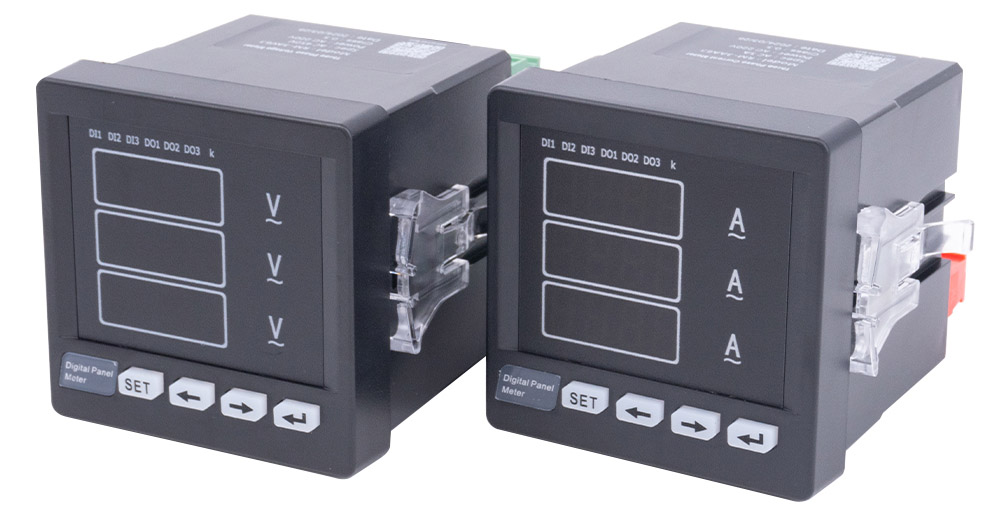- All
- Product Name
- Product Keyword
- Product Model
- Product Summary
- Product Description
- Multi Field Search
Views: 0 Author: Site Editor Publish Time: 2025-11-25 Origin: Site










A digital panel meter is an electronic instrument used to display important electrical measurements such as voltage,current, frequency, power, and temperature in a clear numeric format. Its main purpose is to provide accurate and real time readings that help users monitor and control electrical systems more effectively. Digital panel meters are widely used in industrial automation, power systems, laboratory testing, and many types of equipment where reliable measurement is essential. Their popularity has grown due to their precision, easy integration, and ability to present data in a consistent and readable way.

One of the main uses of a digital panel meter is continuous monitoring of electrical parameters. In applications such as industrial machinery, power distribution panels, generators, or battery management systems, operators need to know exactly how much current or voltage is flowing across the system. The meter allows them to see this information instantly. Because the readings are shown digitally, they are much easier to interpret compared to traditional analog meters. The digital format helps reduce reading errors and ensures precise measurement, especially in systems that require high accuracy.
Another important use of digital panel meters is system protection. Many meters can be connected to alarms or control circuits that respond when a measurement exceeds a safe range. For example, if the voltage rises too high or the current drops below a required level, the system can trigger a shutdown or warning. This is essential in sensitive applications such as medical equipment, renewable energy systems, and power supplies, where unexpected changes can damage the equipment or create safety risks. By monitoring parameters continuously, the digital panel meter helps prevent failures and maintains stable operation.
Digital panel meters also play a key role in process control. In automated production lines or testing environments, accurate data is necessary for maintaining product quality and ensuring that machines operate within their specified parameters. Digital meters can be integrated with controllers and sensors, making it possible to adjust the system based on real time measurements. This improves efficiency and helps companies maintain consistent performance from their equipment. Many modern digital panel meters also support data communication through protocols such as RS485 or Modbus, allowing them to work in advanced monitoring networks or smart factory environments.
Another advantage of digital panel meters is their flexibility and customization. They come in many types, including voltage meters, current meters, frequency meters, power meters, and multifunction meters. Some models offer programmable settings, selectable input ranges, and customizable display brightness or color. This makes them suitable for both simple and complex applications. Engineers can choose the exact type of meter that fits their system requirements. This adaptability is especially useful in fields such as automation engineering, electrical testing, HVAC control, and energy management.
Digital panel meters are commonly used in power systems for monitoring AC and DC parameters. They are found in distribution cabinets, control panels, solar power inverters, wind turbine systems, UPS systems, and battery chargers. In these applications, the meter provides essential information that helps operators optimize performance, ensure stability, and detect faults early. In laboratory and research environments, digital panel meters are used for testing circuits, evaluating prototypes, and monitoring experiment conditions with high precision.
Another common application is equipment manufacturing. Many machines, including welding machines, generators, industrial chargers, and power converters, integrate digital panel meters to display operating values to the user. This provides immediate feedback and helps technicians correct abnormalities quickly. Because digital meters have bright LED or LCD displays, the readings are visible even in low light or challenging environments, which is beneficial in factories, workshops, and outdoor installations.
Overall, the use of a digital panel meter is essential in any system that requires accurate, real time monitoring of electrical quantities. Its precision, readability, flexibility, and compatibility with modern control systems make it an important component across many industries. Digital panel meters not only help keep equipment operating safely but also support better decision making and improved system performance.